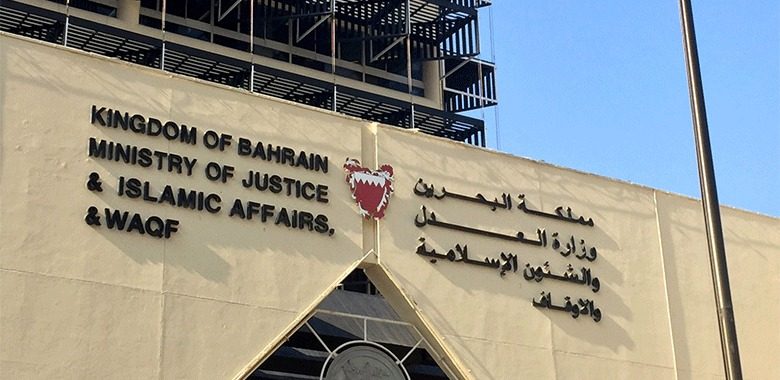Bahrain: Despite trans man’s appeal, Sunni-focused court rejects gender-affirming care
Colin Stewart is a 45-year journalism veteran living in Southern…
Unlike Shiite Iran, Bahrain allows only intersex people, not trans people, to get medical relief.

The following article was published by Cairo52, an Egyptian human rights legal research institute:
Bahrain: Continued Denial of Legal Gender Recognition and Gender-affirming Healthcare for Transgender People in the Name of Islamic Sharia
By Nora Noralla
In a recent judgment from May 2023, a Bahraini lower court rejected a transman’s application to obtain legal gender recognition and access gender-affirming healthcare, citing Islamic Sharia.
The plaintiff sought judicial approval to undergo gender-affirming healthcare and to obtain legal gender recognition afterwards. They requested to be examined by a medical committee from the Ministry of Health to determine the necessity of undergoing gender-affirming healthcare to treat their gender identity disorder. The plaintiff submitted medical documentation from Bahrain and abroad, proving that they have been diagnosed with gender identity disorder and have consistently exhibited masculine social attitudes while preferring to present themselves as male. Therefore, they decided to request to undergo gender-affirming healthcare and attempted to obtain legal gender recognition to alleviate their mental anguish and align their gender identity with their legal documents and physical appearance.

During its examination, the Court emphasized that in the absence of a positive law ruling on the matter of “sex change,” it is obliged to consider the issue from the perspective of legal principles derived from the Bahraini Court of Cassation and Islamic Sharia. The Bahraini Court of Cassation indeed had the opportunity to examine the issue and formulate fundamental legal principles based on Islamic Sharia. These principles mirror the perspectives of Sunni scholars on “sex change” as presented in the 1980s through various fatwas (religious rulings) issued by Egypt’s Al-Azhar and Saudi Arabia’s Islamic Fiqh Council. These fatwas examined the criteria that should be met by an individual seeking medical procedures resulting in “sex change.” Islamic jurisprudence (Fiqh) unequivocally prohibits altering Allah’s creation without necessity; hence, Islamic scholars aimed to establish the medical conditions that could be considered a necessity in order to exempt individuals from the prohibition on changing Allah’s creation.
The scholars developed Fiqh to encompass two medical conditions for consideration in “sex change” medical treatment: mental, namely gender identity disorder, and biological, namely intersexuality. The scholars unanimously agreed that transgender individuals should not be allowed gender-affirming healthcare, as it would entail “moving from a correct status to a wrong one,” alluding to the fact that their condition is mental, and biologically, they fall within the binary. Meanwhile, intersex individuals should not only be allowed but also encouraged to undergo “sex change” treatments to “rectify their position and align it within the binary.”Thus, the Bahraini Court of Cassation adheres to the principles of Fiqh and has determined that transgender individuals should not be granted legal gender recognition due to their transition being considered a violation of Islamic Sharia and viewed as “disrupting the natural biological state”. Thus, the Court recognizes the need for legal gender recognition for intersex individuals as it is regarded as a means of “correcting” their biological condition without altering it, thereby not contradicting the prohibition on altering Allah’s creation.

After establishing the standpoint of Islamic Sharia and the Bahraini Court of Cassation on legal gender recognition, the Court proceeded to examine the biological status of the plaintiff by analyzing hormonal profiles, chromosomal evidence, and physical characteristics, with the aim of determining whether the plaintiff was intersex or transgender. The investigation revealed that the plaintiff is biologically female and lacks any characteristics indicative of intersex traits.
Consequently, the Court reached the conclusion that the plaintiff identifies as a transgender person suffering from gender identity disorder and wishes to undergo surgical procedures as a result. Although seeking hormonal and surgical treatments for gender identity disorder is not criminalized in Bahrain, the Court determined that solely having gender identity disorder does not substantiate grounds for a complete “sex change” as it contradicts both Islamic Sharia and the legal principles established by the Bahraini Court of Cassation.
The position of the Court in this case highlights the contradictory stance of the Bahraini judiciary. While the criminalization of being transgender or queer in general does not exist in the Kingdom, Bahraini transgender individuals face numerous restrictions when it comes to accessing fundamental human rights. These restrictions are based on interpretations of Islamic Sharia rather than considering medical or legal opinions, undermining the constitutional human rights of Bahraini transgender citizens. Additionally, transgender cases in Bahrain reveal the division between the State and the religious beliefs of the population. Even though 65-75% of the population is Shia, Bahrain follows Sunni Islam exclusively due to the Sunni affiliation of the royal family. In contrast, other countries with significant Shia populations, such as Lebanon and Iraq, rely on Shia Fiqh as the reference for Shia populations in civil matters.
This is not the case in Bahrain, where laws and judicial opinions follow the Sunni Fiqh of the Royal Family, disregarding the Shia perspective. The presented case provides evidence of this division, particularly concerning the treatment of gender identity disorder and gender-affirming healthcare. As previously mentioned, the Sunni reject gender-affirming healthcare for transgender individuals. At the same time, Shia scholars acknowledge that gender identity disorder can be considered a medical necessity for undergoing gender-affirming healthcare. They provide an exemption to the ban on altering Allah’s creation, contingent upon the transgender person correctly obtaining the socio-religious gender role of their acquired gender. Based on this, neighbouring Iran developed a unique but flawed system for transgender individuals to transition, enabling access to gender-affirming healthcare and legal gender recognition to allow them and sometimes force them to fit within the socio-religious binary and avoid disruption by denying these two aspects.
Although it is unclear whether the plaintiff, in this case, was Sunni or Shia, the fact that the Bahraini Court of Cassation established its rules on gender-affirming healthcare and legal gender recognition solely based on Sunni Fiqh without acknowledging the dominant Shia population and their different Fiqh on the matter, reveals the marginalization of the Shia population by the Bahraini judiciary. This marginalization has significant implications for the lives of Shia transgender individuals in Bahrain.
While it would be preferable to approach transgender matters from a purely legal and medical perspective, such an approach is difficult to envision in Bahrain and neighbouring countries in the Gulf, as Sunni Islamic Sharia serves as the source of many of the country’s laws and policies regarding transgender people.
Nora Noralla is an executive director of the Cairo 52 Legal Research Institute.




